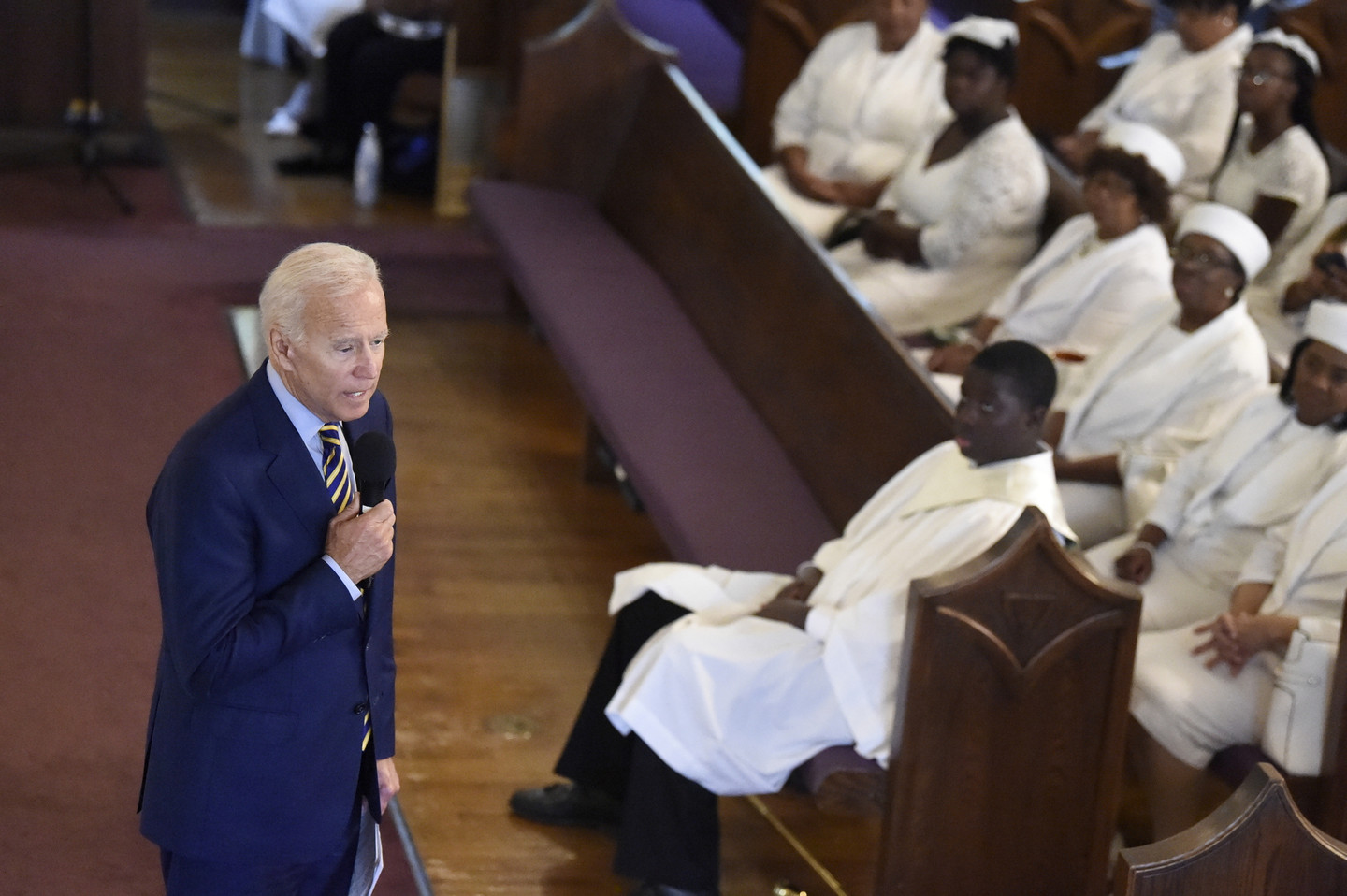The Clout of South Carolina Democrats
November 22, 2019#election2020 #AfricanAmericanvoters #SouthCarolinaDemocraticprimary

What do Strom Thurmond, Harry Dent, and Lee Atwater have in common? Together they developed and employed the Republicans’ notorious “Southern Strategy.” Pitting working-class white folks and working-class black folks against each other with clever code words helped put Richard Nixon, Ronald Reagan, and both presidents named George Bush in the White House. Donald Trump used it, too, and didn’t even bother with the “dog whistles.”
Also, Thurmond, Dent, and Atwater were all from South Carolina. Now, we must overcome their legacy with a new Southern Strategy -- a Democratic Southern Strategy. So, once again we must look to South Carolina.
Julian Castro is right when he says that we need to look at the primary schedule and address the fact that Iowa and New Hampshire are almost exclusively white states. The Democratic Party, however, is far from monochromatic – 27% of the Democratic electorate is African American.
That’s why the game-changing presidential primary is the fourth contest, on Feb. 29, in South Carolina. It is followed three days later by Super Tuesday where the momentum from the Palmetto State is likely to serve as the high-octane fuel to take one candidate up I-95 to 1600 Pennsylvania Ave. and a four-year lease on leadership.
It’s no secret that the dominant and most loyal voting bloc in South Carolina is African American voters and that these voters will be critical for any Democrat’s success in late February, early March, and beyond. Realize that roughly 60% of all those who cast votes on Feb. 29 will be African American.
Now look at the states that follow. Think about Alabama and North Carolina, whose demographics mirror South Carolina’s so closely that they could be sisters. Think about California and Texas, where non-Hispanic whites make up less than half the population. Think about Arkansas. Think about Tennessee. Think about Virginia.
But it’s more than just reaching out to African Americans.
All politics is local, even when running for president. Too much focus is put on broad sweeping reforms that an increasingly skeptical electorate does not believe can be accomplished. Voters want to feel personally seen and the best way to do that is to look at the road map to winning South Carolina.
The state isn't just a good guide for retail politics that speak to issues affecting minorities; what works there is a style of campaigning and a set of programs that speak to the importance of personalized politics. Columbia is the largest city in South Carolina but is, at best, a small to medium-sized city by national standards.
Four rural hospitals have closed in South Carolina since 2012. So ask folks in the eight rural South Carolina counties with no OB/GYN if the challenges they face are real.
Ask folks in Dillon if poor rural schools get the funding they need to fix leaky roofs and broken windows. Ask anyone how hard it is to live with no grocery store in your community, why the roads are never repaved or where the kids play when there are no parks or playgrounds and the only library within an hour’s drive doesn’t have enough books to go around.
Now look at Super Tuesday states like Oklahoma, Minnesota and Maine and know that they’re facing many of the same issues. So imagine what happens when you develop and implement a high-tech and high-touch approach that speaks directly to African American, minority and rural voters about the issues that matter to them.
I’ll tell you what happens: You take Super Tuesday by storm and position yourself and secure the momentum to run the table in the contests that follow -- and it’s all thanks to a model you built in South Carolina. That’s why the South as a whole, and the Palmetto State in particular, is critical not just to securing the nomination but to winning the White House and creating a movement that will fundamentally change our nation.
Lives are at stake, as is the very future of our nation. So it’s time to speak up because the South has something to say and South Carolina will lead the way.
Source: https://www.realclearpolitics.com/

